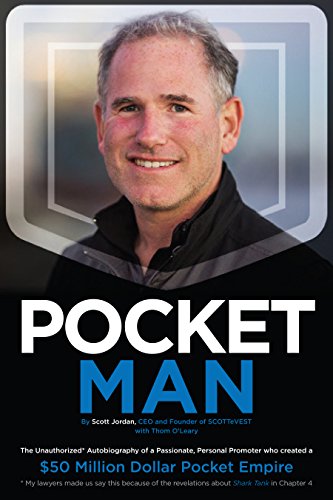Old White Men
sac said:
Is it wrong of me to find this worrisome?
I'm not sure why it should be, objectively. White people are still an overall majority in the US and about 30% of Americans have a bachelor's degree or higher according to Wikipedia. So it's not really a surprise to me. https://en.m.wikipedia.org/wiki/Educational_attainment_in_the_United_States?wprov=sfla1
The non-college-grad white Male demographic seems to show up a lot in analyses of Trump supporters. They are probably the group who feel most threatened by changing demographics, the advancement of women and other ethnic groups. It's a fear that can be stoked by an unscrupulous politician.
White men have enjoyed a spot at the head of the table for, well, ever. Plus the power to choose everyone else's positions at the table. (It's like a long conference table in my mind).
I feel unqualified to really offer any substantive analysis of how this affects society as a whole. I'm mostly just offering my opinion and limited perspective.
I couldn’t find the Gladwell analysis, but here’s the Planet Money analysis, aired last week. It created its modal American using these characteristics: age group, sex, race, education, job status, income, urban/suburban.
If those are the categories, the modal American is ... a white girl. (Because so many children are white girls and have no college education or full-time job.)
That red herring aside, the Planet Money modal American is a married white Gen X man with no bachelor’s degree who lives in a suburb and has a full-time job and upper-middle-class household income between $75,000 and $165,000.
It’s notable that there are about two million of those modal Americans, fewer than 1 percent of the population. The episode didn’t say who’s No. 2, mrincredible.
The show points out that one reason the modal American is not a boomer or a millennial is that those much larger generations are more split, for instance, in their job status (employed/retired for boomers and student/employed for millennials). Gen Xers are in the stage of life that tends to be more homogeneous.
The half-hour Planet Money: https://www.npr.org/2019/08/28/755191639/episode-936-the-modal-american
kmt said:
Maybe “college educated” has become more noise and less signal than it used to be.
The “modal American” interviewed by Planet Money was a guy from the Boston suburbs who, without a college degree, has made a good living at car dealerships (and — wink, wink — is a regular NPR listener).
what does "modal" even mean in this context? Seems like kind of a useless categorization.
drummerboy said:
what does "modal" even mean in this context? Seems like kind of a useless categorization.
It means the general type of American you’re most likely to meet at random — the most common, even though he’s not really that common. The Planet Money hosts, joined by Ben Casselman of The Times, acknowledged that this was more of an intellectual exercise than anything illuminating about what made America tick.
I would not dismiss this as simply an intellectual exercise. If you look at how targeted advertising can affect election results, you can see how this kind of analysis can be significant. Advertising funded content providers like Facebook and Instagram make their money off of understanding exactly who they are reaching with their ads.
Facebook could probably generate a spreadsheet pretty quickly with a far more detailed breakdown of who the most common type of person is, within a pretty tight margin of error and with a very large sample size.
mrincredible said:
Facebook could probably generate a spreadsheet pretty quickly with a far more detailed breakdown of who the most common type of person is, within a pretty tight margin of error and with a very large sample size.
The question raised by Planer Money, though, is: If you keep narrowing the parameters, only a few thousand Americans will fit them, and how typical is that, really?
mrincredible said:
boomie said:
Side note, Malcolm Gladwell did an analysis of the "Modal" person ( rather than average or median person) - that is, he created an algorithm to try to identify the most prevalent person in the US right now, based on race, education, and age. The most common person is a white male, aged 38-54 (Gen X) and never completed college. Interesting, especially in light of the small size of GenX (sandwiched between Boomers and Millenials) and also because I think we assume a majority of people in this age group are college educated, but that's not the case.
I fall in the age and race demographic but I squeaked through college.
Boomie, do you remember the actual percentage of people who fell in this bucket? I'm sure this group doesn't represent any kind of majority, but it would be interesting to see how it breaks down. I would guess the 2nd most prevalent group is probably similar but switch the gender to female. But I could be wrong.
Based on various statistics, the percentage of people obtaining a college degree is significantly lower than the percentage that enroll in some type of college after high school. A lot of people are never finishing their degrees.
DaveSchmidt said:
The question raised by Planer Money, though, is: If you keep narrowing the parameters, only a few thousand Americans will fit them, and how typical is that, really?
If you're looking at swinging an election, and you can find say 5000 votes in a district that might respond to a specific targeted ad, you're probably on to something. It happened in 2016 to a certain degree. My guess is it will become more refined in future elections.
mrincredible said:
If you're looking at swinging an election, and you can find say 5000 votes in a district that might respond to a specific targeted ad, you're probably on to something. It happened in 2016 to a certain degree. My guess is it will become more refined in future elections.
I see. That’s something different from an attempt to describe the modal American.
mrincredible said:
boomie said:
Side note, Malcolm Gladwell did an analysis of the "Modal" person ( rather than average or median person) - that is, he created an algorithm to try to identify the most prevalent person in the US right now, based on race, education, and age. The most common person is a white male, aged 38-54 (Gen X) and never completed college. Interesting, especially in light of the small size of GenX (sandwiched between Boomers and Millenials) and also because I think we assume a majority of people in this age group are college educated, but that's not the case.
I fall in the age and race demographic but I squeaked through college.
Boomie, do you remember the actual percentage of people who fell in this bucket? I'm sure this group doesn't represent any kind of majority, but it would be interesting to see how it breaks down. I would guess the 2nd most prevalent group is probably similar but switch the gender to female. But I could be wrong.
It was something like 2% of the population. A tiny group, but the most represented, number wise.
DaveSchmidt said:
I couldn’t find the Gladwell analysis, but here’s the Planet Money analysis, aired last week. It created its modal American using these characteristics: age group, sex, race, education, job status, income, urban/suburban.
If those are the categories, the modal American is ... a white girl. (Because so many children are white girls and have no college education or full-time job.)
That red herring aside, the Planet Money modal American is a married white Gen X man with no bachelor’s degree who lives in a suburb and has a full-time job and upper-middle-class household income between $75,000 and $165,000.
It’s notable that there are about two million of those modal Americans, fewer than 1 percent of the population. The episode didn’t say who’s No. 2, mrincredible.
The show points out that one reason the modal American is not a boomer or a millennial is that those much larger generations are more split, for instance, in their job status (employed/retired for boomers and student/employed for millennials). Gen Xers are in the stage of life that tends to be more homogeneous.
The half-hour Planet Money: https://www.npr.org/2019/08/28/755191639/episode-936-the-modal-american
SHOOT that was the one! I listened to Revisionist History around the same time and mixed them up but it was definitely Planet Money. Thanks.
DaveSchmidt said:
I see. That’s something different from an attempt to describe the modal American.
I think they're related. I see a practical application to trying to figure out the modal American.
mrincredible said:
I think they're related. I see a practical application to trying to figure out the modal American.
The “modal American,” I think, is by definition (or, at least, by the Planet Money definition) too general for the purposes you’re describing. What you’re describing sounds more to me like pocket Americans.
ETA: But I’m probably underthinking it.
DaveSchmidt said:
The “modal American,” I think, is by definition (or, at least, by the Planet Money definition) too general for the purposes you’re describing. What you’re describing sounds more to me like pocket Americans.
ETA: But I’m probably underthinking it.
In a set, the mean is the average, the median is the middle one, the mode is the one that occurs most frequently. 1 2 3 4 5 5 6 Average=26/7=3.7, median=4, mode=5. But idk what a pocket American is.
NYGmen said:
In a set, the mean is the average, the median is the middle one, the mode is the one that occurs most frequently. 1 2 3 4 5 5 6 Average=26/7=3.7, median=4, mode=5. But idk what a pocket American is.
An American who fits into a pocket targeted by the political ads that mrincredible was talking about. I made it up, but the trademark is up for grabs.
ml1 said:
The NYG men will need more than that, in or out of the pocket, to catch any breaks this season.
Fly, Eagles, fly.
sac said:
boomie said:
Side note, Malcolm Gladwell did an analysis of the "Modal" person ( rather than average or median person) - that is, he created an algorithm to try to identify the most prevalent person in the US right now, based on race, education, and age. The most common person is a white male, aged 38-54 (Gen X) and never completed college. Interesting, especially in light of the small size of GenX (sandwiched between Boomers and Millenials) and also because I think we assume a majority of people in this age group are college educated, but that's not the case.
Is it wrong of me to find this worrisome?
Worrisome that GenX no college is the pivot or worrisome that people still take Malcom Gladwell seriously?
max_weisenfeld said:
Worrisome that GenX no college is the pivot or worrisome that people still take Malcom Gladwell seriously?
Twas Planet Money, not Gladwell.
mrincredible said:
The non-college-grad white Male demographic seems to show up a lot in analyses of Trump supporters. They are probably the group who feel most threatened by changing demographics, the advancement of women and other ethnic groups. It's a fear that can be stoked by an unscrupulous politician.
That's the part I find worrisome, not their age or race particularly.
A gallon of irony was spilled, and not a drop caught the attention of the woke.
Jackson_Fusion said:
A gallon of irony was spilled, and not a drop caught the attention of the woke.
Coleridge?
sac said:
boomie said:
Side note, Malcolm Gladwell did an analysis of the "Modal" person ( rather than average or median person) - that is, he created an algorithm to try to identify the most prevalent person in the US right now, based on race, education, and age. The most common person is a white male, aged 38-54 (Gen X) and never completed college. Interesting, especially in light of the small size of GenX (sandwiched between Boomers and Millenials) and also because I think we assume a majority of people in this age group are college educated, but that's not the case.
Is it wrong of me to find this worrisome?
When you compare that study's finding with other countries, such as ours (Australia), interesting (and somewhat sad) pictures emerge. A recent social study over here revealed that a similar demographic tends to see their parents less than once a year, once they've moved out of the parental home.
I can't remember the rest of the discussion I heard this morning as I drove to work, nor the name of the researcher. I'll see if I can track it down once I've slept a bit.
To me, the two studies seem to suggest a lot about rapid change in how we see social behaviours form and change especially in recent years, and where various cohorts find their regulatory authority. They resist 'change' yet also don't quite want the world in which they grew up; they seem to yearn for a perfect past that never truly existed except in ads and on the Silver Screen. Doomed to be disillusioned...
Rentals
-
Huge Brand New construction Apartment in 2 family home with 4 bedrooms 3 bathrooms
4 Bd | 3Full Ba
$4,500
Employment Wanted
Latest Jobs
Employment Wanted
-
Apr 17, 2024 at 6:35pm
-
Administrative Assistant/REMOTE-Part Time
Apr 17, 2024 at 1:19pm
-
Apr 17, 2024 at 12:14pm
-
Apr 16, 2024 at 10:59am
-
Nanny available beginning mid June!
Apr 15, 2024 at 10:21pm
-
Full Spectrum Doula | CPR Instructor
Apr 15, 2024 at 5:11pm
-
Apr 15, 2024 at 1:01pm
Help Wanted
-
WF743 Part Time Nanny/Family Assistant for 2 (ASAP Start)
Apr 16, 2024 at 8:17am
-
Apr 15, 2024 at 10:26am
-
Apr 15, 2024 at 10:10am


























Maybe “college educated” has become more noise and less signal than it used to be.